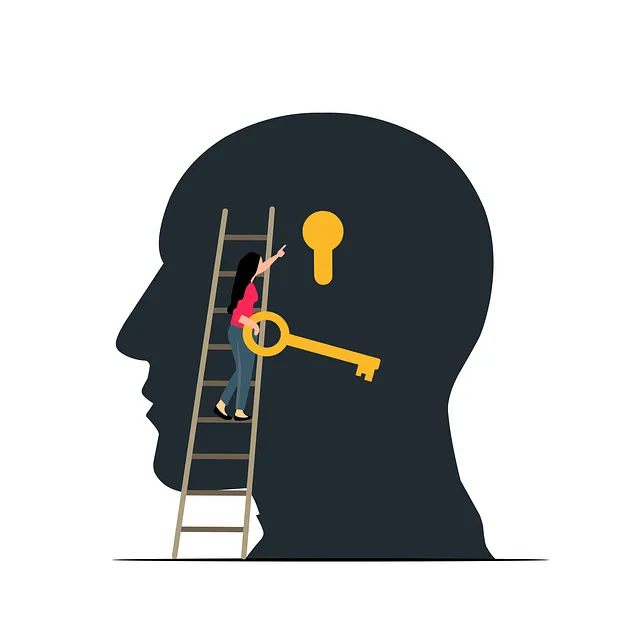Mental wellness coaching offers a proactive, accessible approach to enhancing mental well-being, focusing on prevention and resilience. It caters to diverse needs by integrating self-care routines, evidence-based techniques, and technology for remote sessions. This community-based model bridges gaps left by traditional inpatient programs like those offered by Littleton's Kaiser Mental Health, especially in underserved areas. Measuring success through various assessment tools ensures program effectiveness and tailored interventions for individual client needs.
Mental wellness coaching programs have emerged as a pivotal tool in addressing growing mental health concerns. This article delves into the evolution of these programs, offering a comprehensive guide on their development and implementation. We explore traditional inpatient models versus community-based approaches, highlighting the benefits of the latter. Key components for effective coaching are dissected, along with the integration of technology to enhance accessibility. Additionally, assessment methods for evaluating success in wellness coaching are discussed, providing insights into how programs like Littleton or Kaiser’s mental health services can be optimized.
- Understanding Mental Wellness Coaching: A Definition and Its Purpose
- Evaluating Traditional Inpatient Programs vs. Community-Based Approaches
- Designing Effective Coaching Programs: Key Components and Strategies
- Integrating Technology: Digital Tools for Accessible Mental Health Support
- Measuring Success: Assessment and Evaluation Methods for Wellness Coaching
Understanding Mental Wellness Coaching: A Definition and Its Purpose

Mental wellness coaching is a supportive and empowering process designed to help individuals improve their overall mental well-being. It involves guiding clients towards achieving better coping mechanisms, enhanced self-awareness, and improved life satisfaction. This type of coaching goes beyond traditional therapy by focusing on prevention and promoting resilience in individuals who may not necessarily require clinical intervention.
In today’s fast-paced world, where stress and mental health challenges are prevalent, coaches play a vital role in supporting folks, especially those without access to inpatient mental health services like what Littleton does Kaiser offer. Mental wellness coaching programs development is crucial, ensuring these coaches receive the necessary training, such as cultural competency training, to cater to diverse client needs effectively. By integrating self-care routine development within coaching, individuals can learn practical strategies for managing stress and cultivating positive mental health habits, thereby reducing the reliance on healthcare providers for acute issues.
Evaluating Traditional Inpatient Programs vs. Community-Based Approaches

In the mental wellness coaching landscape, there’s a constant debate between traditional inpatient programs and community-based approaches. Programs like those offered by Littleton or Kaiser, with their inpatient facilities, provide intensive, structured care in controlled environments. This format is beneficial for severe cases requiring close monitoring, specialized treatments, and a rapid response to crises. However, it’s not without drawbacks; high costs, limited availability, and potential stigma can deter individuals from seeking help.
On the other hand, community-based approaches emphasize outreach, accessibility, and continuity of care within familiar environments. These programs often employ emotional regulation techniques and promote emotional well-being through tailored, less invasive interventions. While they may not offer the intensity of inpatient care, they bridge gaps in mental health services, particularly for underserved communities. Effective community-based programs integrate risk assessment tools for mental health professionals to tailor interventions, ensuring a more inclusive and holistic approach to emotional wellbeing promotion.
Designing Effective Coaching Programs: Key Components and Strategies

When designing effective mental wellness coaching programs, several key components and strategies prove indispensable. Firstly, tailored programs that address individual needs are paramount. Mental wellness coaches should assess clients’ unique circumstances, including their specific mental health challenges and personal goals, to create customized interventions. Incorporating evidence-based techniques from Burnout Prevention Strategies for Healthcare Providers can significantly enhance program efficacy. These might include mindfulness practices, stress management strategies, and cognitive-behavioral therapies, tailored to align with the client’s preferences and cultural background.
Secondly, fostering a safe and supportive environment is crucial. Coaches must ensure confidentiality and create a non-judgmental space where clients feel empowered to explore their mental health openly. Regular check-ins, clear communication channels, and flexible program structures promote client engagement. Additionally, integrating technology for remote sessions, especially considering options like video conferencing, can broaden access to mental wellness coaching, potentially including individuals who lack proximity to specialized facilities, such as those offered by Littleton’s Kaiser Inpatient Mental Health services.
Integrating Technology: Digital Tools for Accessible Mental Health Support

In today’s digital era, integrating technology offers innovative solutions for accessible mental health support, especially considering options like what Kaiser does Littleton have for inpatient mental health care. Digital tools such as mobile apps and online platforms can provide individuals with resources for emotional regulation and self-care, bridging the gap between traditional therapy sessions. These tools often incorporate interactive features, like guided meditations and mood tracking, to empower users in managing their mental wellness.
For mental wellness coaching programs, leveraging technology allows for scalability and personalization. Online coaching platforms can connect clients with coaches who specialize in various areas, including risk management planning for mental health professionals and addressing cultural sensitivity in healthcare practice. This digital approach expands access to care, making it more convenient and potentially life-saving, especially in regions where mental health resources are limited or hard to reach.
Measuring Success: Assessment and Evaluation Methods for Wellness Coaching

Measuring success in mental wellness coaching is paramount to understanding the program’s effectiveness and ensuring client progress. Assessment methods play a crucial role in this process, providing insights into both short-term improvements and long-term outcomes. These evaluations can include pre-post tests, self-reported questionnaires, and structured interviews. For instance, the Mental Wellness Journaling Exercise Guidance technique encourages clients to document their experiences, allowing coaches to assess changes in mood, thought patterns, and overall well-being over time.
Trauma Support Services within programs often incorporate specialized assessment tools tailored to address complex mental health issues. These assessments help identify specific areas of focus and tailor coaching interventions accordingly. Furthermore, designing Mental Health Education Programs with a strong evaluation component involves incorporating feedback mechanisms, allowing coaches to adapt their strategies in real-time. This continuous improvement approach is essential, especially when considering the diverse needs of clients, such as those seeking support through services like Littleton’s Kaiser’s inpatient mental health program.
Mental wellness coaching programs are evolving, offering accessible and community-based support that complements traditional inpatient care. As organizations like Kaiser explore alternatives to hospitalization in Littleton and elsewhere, digital tools play a pivotal role in expanding reach and enhancing care. By integrating technology, evaluating program effectiveness through assessment and measurement, and focusing on key components such as personalized goals and accountability, we can revolutionize mental health support. These strategies ensure that coaching programs are not just effective but also tailored to meet the diverse needs of individuals seeking improved mental wellness.






